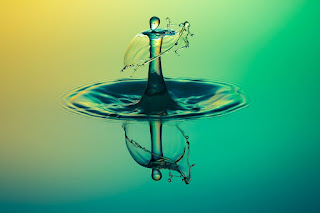Hydration plays a critical role in a triathlon, as staying properly hydrated is essential for optimizing performance, maintaining endurance, and ensuring overall well-being during the race. Triathletes lose fluids through sweat during each discipline (swimming, biking, and running), and failure to replace these lost fluids can lead to dehydration, which can significantly impact performance and increase the risk of heat-related illnesses. Here's how athletes manage hydration during a triathlon:
Pre-Race Hydration: Adequate hydration begins before the race. Athletes should focus on hydrating well in the days leading up to the event. Consuming water and electrolyte-rich beverages is essential to ensure that they start the race well-hydrated.
During the Swim: In the swim leg of a triathlon, hydration is not practical, as it's challenging to drink while swimming. However, athletes prepare by being well-hydrated before the race and ensuring they are not starting in a dehydrated state.
Bike Hydration: The bike leg is where athletes primarily manage their hydration. Most triathletes have hydration systems on their bikes, such as water bottles or hydration bladders, to drink regularly during the ride. It's common for triathletes to use sports drinks or electrolyte mixes to replace lost fluids and essential minerals.
Aid Stations: Many triathlon races have aid stations along the bike and run courses. Athletes can grab water or sports drinks at these stations to supplement their bike-mounted hydration systems.
Hydration Strategies: Athletes have various hydration strategies during the race. Some may follow a schedule, taking small sips every few minutes, while others may drink to thirst. It's essential for athletes to find a strategy that works best for their individual needs and preferences.
Electrolyte Balance: In addition to water, maintaining electrolyte balance is crucial for proper hydration. Sodium, potassium, magnesium, and other electrolytes are lost through sweat and need to be replenished during the race.
Monitoring Hydration Status: Experienced triathletes pay attention to their hydration status during the race. Signs of dehydration include excessive thirst, dark urine, dizziness, and fatigue. Athletes adjust their hydration strategies based on how they feel and environmental conditions.
Post-Race Rehydration: Proper rehydration after the race is essential for recovery. Athletes consume water, electrolyte drinks, and hydrating foods to replenish fluids and restore electrolyte balance.
Effective hydration management is vital for triathletes to perform at their best and avoid the negative effects of dehydration. By having a well-thought-out hydration plan, paying attention to their body's signals, and making adjustments as needed, triathletes can ensure they are well-hydrated and primed for success throughout the race.
Photo: Pixabay (free)

No comments:
Post a Comment
Thanks for your comment.